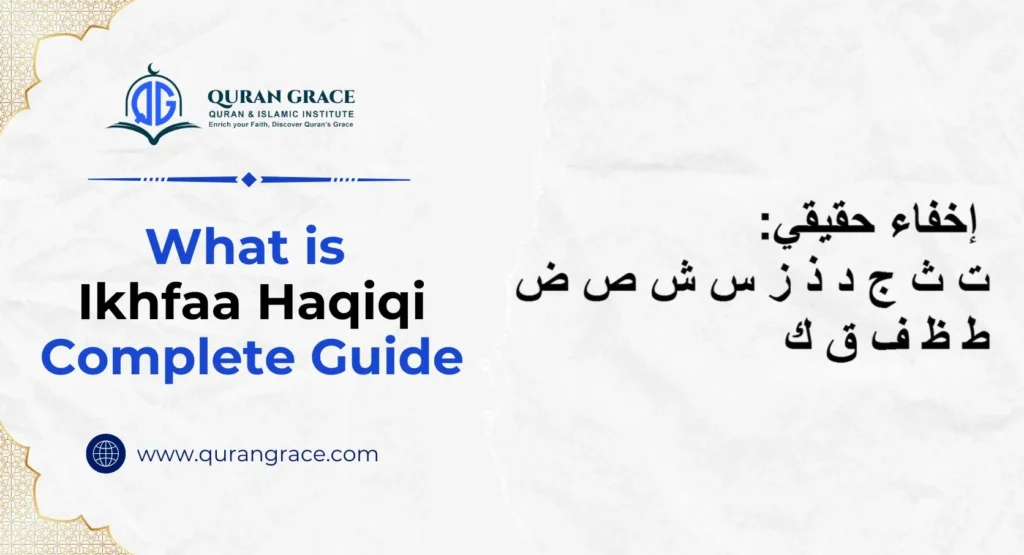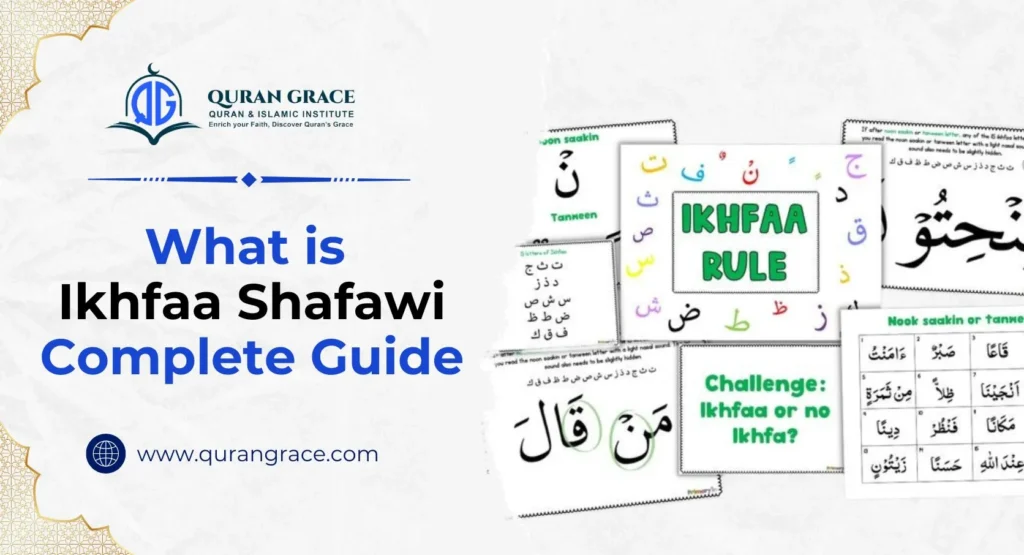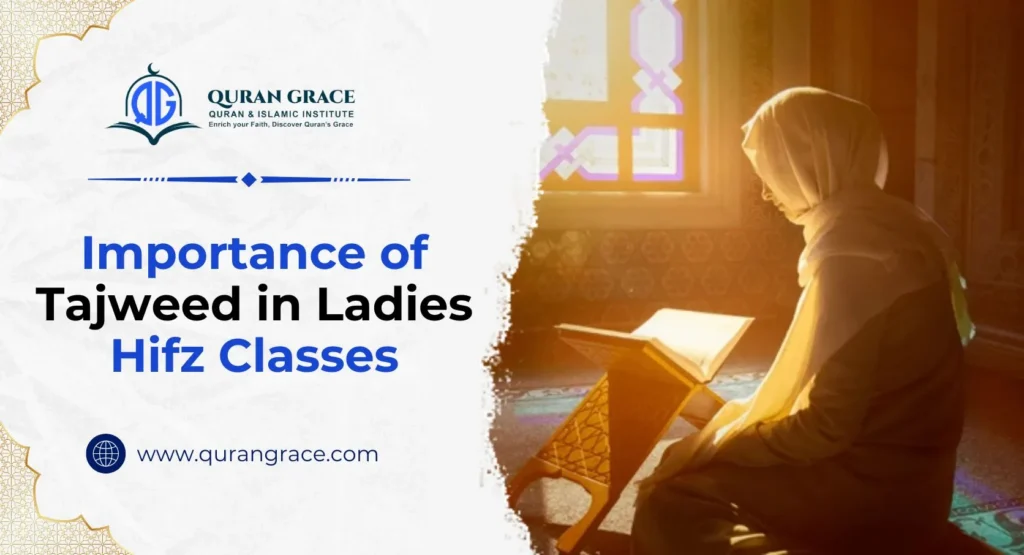When listening to beautiful Quranic recitation, you may notice specific sounds being elongated, contributing to a melodious flow. This intentional elongation is not arbitrary; it is rooted in Tajweed, the science that governs the correct recitation of the Quran. Today, we will explore one of the crucial rules of Tajweed known as Madd e Mutassil, which highlights this practice.
Table of Contents
ToggleWhat is “Madd”?
In the study of Tajweed, “Madd” (مد) is an important concept that translates to “lengthening” or “extension.” This technique involves prolonging the sound of specific letters, known as the “letters of Madd,” for a designated duration. This can be likened to sustaining a musical note for a longer period.
There are three primary letters associated with Madd:
- Alif (ا) – This occurs when Alif is followed by a Sukoon (◌ْ) after a Fatha (◌َ), as seen in the word بَا (baa).
- Waw (و) – This letter is used when Waw is followed by a Sukoon (◌ْ) after a Dhammah (◌ُ), such as in the word بُو (boo).
- Ya (ي) – This applies when Ya is followed by a Sukoon (◌ْ) after a Kasrah (◌ِ), demonstrated in the word بِي (bee).
Understanding these letters and their corresponding rules of Madd is crucial for proper pronunciation in Arabic recitation.
What is Madd “Muttasil” (متصل)
“Muttasil” means “connected” or “joined.” Madd Muttasil occurs when a letter of Madd (Alif, Waw, or Ya) is followed immediately by a Hamzah (ء), and both are in the SAME word. This connection within the same word is key to why it’s called “Muttasil.”
Examples of Madd Mutassil
Let’s look at some common examples from the Quran:
- السَّمَاءِ (As-samaa’i) – Here, the Alif (ا) is a Madd letter, followed by Hamzah (ء) in the same word. So, you lengthen the “maa” sound.
- جَاءَ (Jaa’a) – Again, Alif (ا) followed by Hamzah (ء) in the same word. Lengthen the “jaa” sound.
- أُولَئِكَ (Ulaa’ika) – The Alif (ا) here is a Madd letter followed by Hamzah (ء) in the same word. Lengthen the “laa” sound.
- سُوءٌ (Soo’un) – Here, the Waw (و) is a Madd letter, followed by Hamzah (ء) in the same word. Lengthen the “soo” sound.
- يُضِيءُ (Yudee’u) – The Ya (ي) is a Madd letter, followed by Hamzah (ء) in the same word. Lengthen the “dee” sound.
Notice how in all these examples, the Madd letter and the Hamzah are inseparable within a single word.
How Long Does Madd Muttasil last?
This is where the “rules” come in. For Madd Muttasil, you must lengthen the sound of the Madd letter for 4 or 5 counts (or vowel units). So, you’re extending that sound for quite a noticeable duration.
Why Is Madd Mutassil Important?
- Correct Recitation:
Adhering to the fundamental rules of Tajweed is essential for accurate Quran recitation. Neglecting these rules can lead to reciting the Quran in a manner that deviates from how it was originally revealed.
- Preserving Meaning
While proper application of Madd may not always cause significant changes in meaning, it plays a vital role in maintaining the rhythm and flow of the Quranic text. This preservation is crucial to upholding the sanctity of the Quran.
- Beauty and Melody
When implemented correctly, Madd Muttasil enhances the beauty and melody of the recitation, making it more enjoyable and spiritually uplifting for listeners.
A Quick Tip for Beginners
When you see a small wavy line (~) or an elongated dash over a Madd letter in your Mushaf (Quranic text), it often indicates that a lengthening is required. For Madd Muttasil, this sign will be present, prompting you to extend the sound for 4-5 counts.
Whenever you recite the Quran, make sure you are following the rule of Madd mutassil and see the beauty in your recitation.
Conclusion
Learning the rules of Tajweed is crucial for accurate pronunciation and recitation. If you want to learn all the rules of Tajweed from a certified teacher, we recommend joining Quran Grace Academy for online Quran tajweed classes. We facilitate beginners with a free evaluation class to make them understand how our customised and flexible classes work. Let’s learn these amazing Tajweed rules right away!








